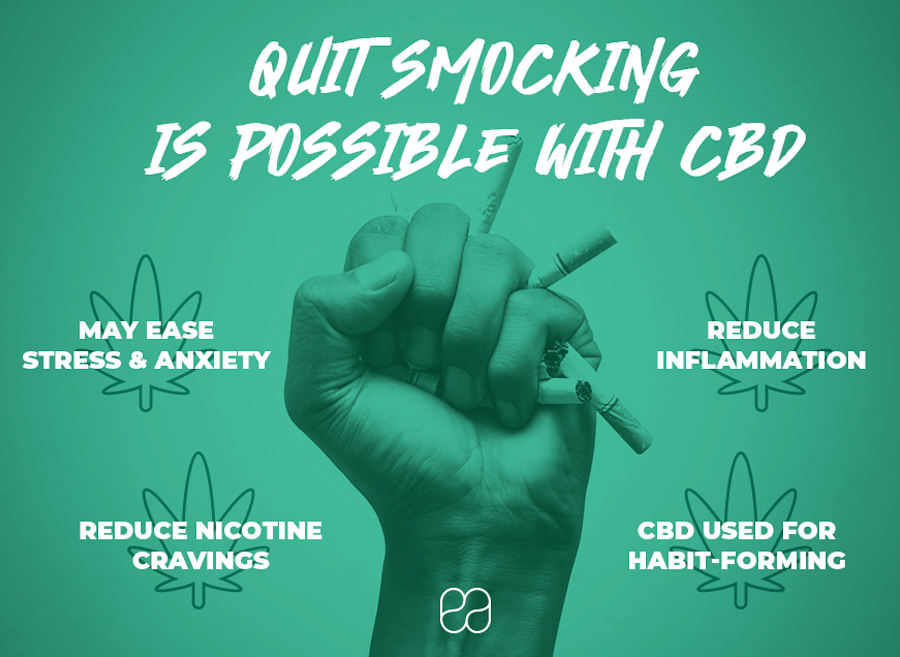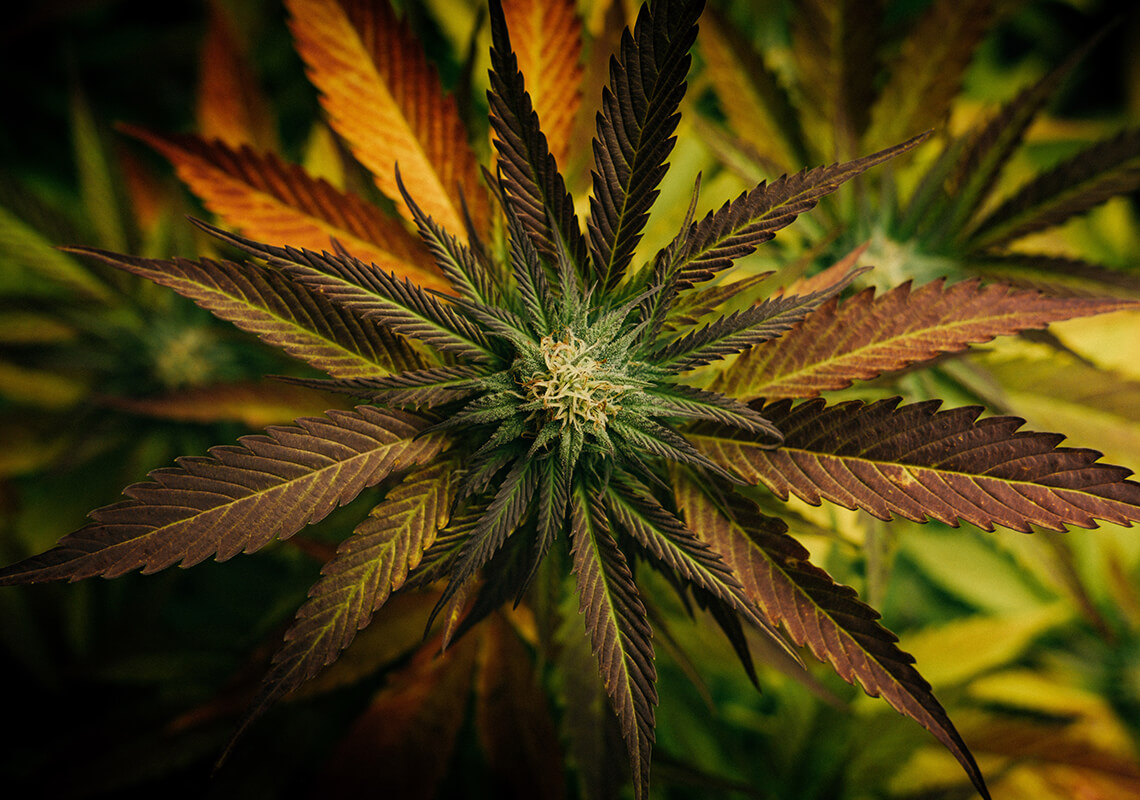Beginner’s 101
The difference between CBD vs THC- All you need to know
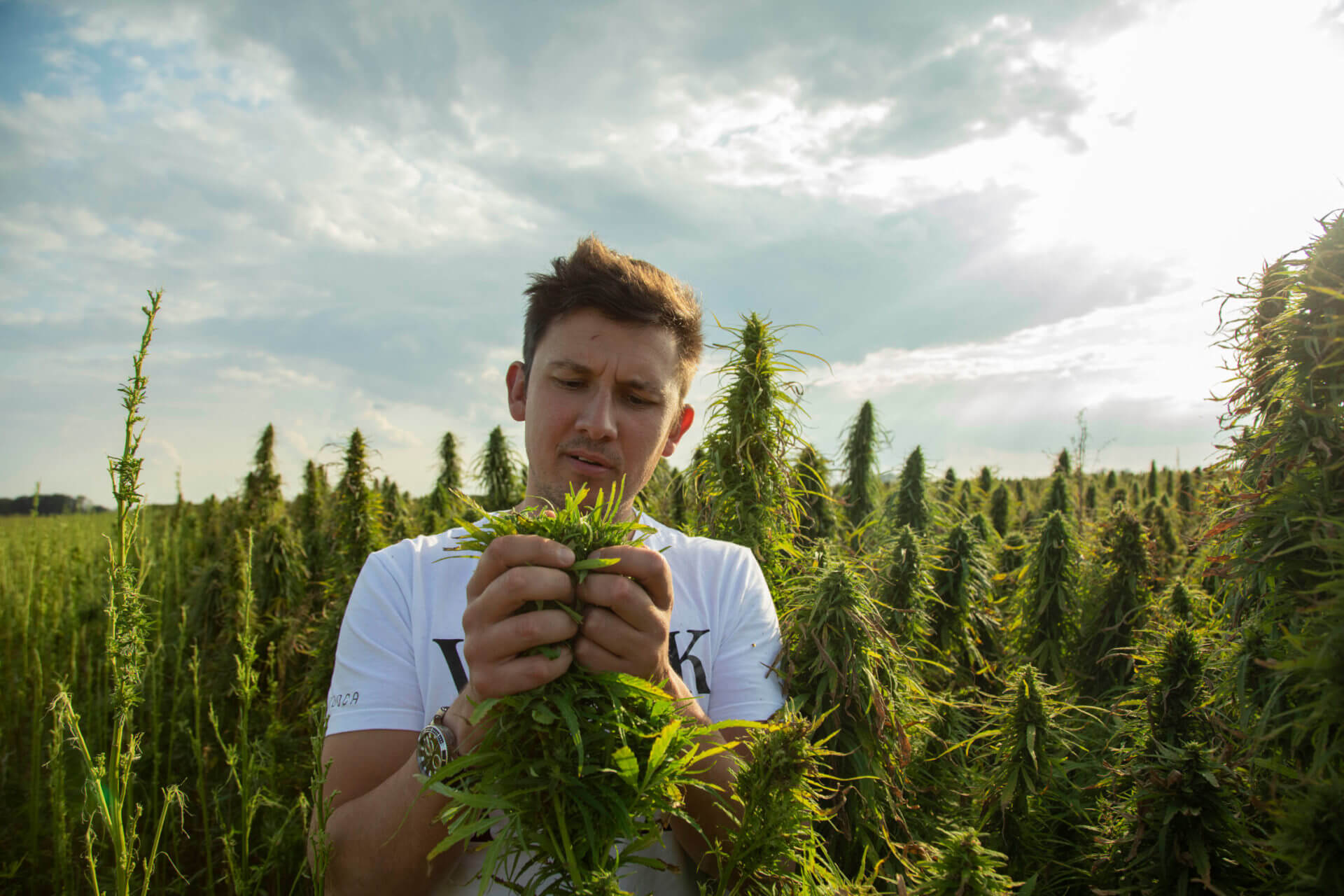
As the popularity of CBD products grows amongst consumers, more and more people are becoming curious about CBD vs THC. One of our most frequently asked questions at Endoca, is what’s the difference between CBD and THC, are they the same?
Quite often people have heard of cannabidiol (CBD) and tetrahydrocannabinol (THC) as they’re the two most common compounds related to cannabis. But most are unsure what these terms actually mean and how it relates to CBD products.
Here we break down the key differences between CBD vs THC so that you can learn the CBD basics. In this post we’ll cover:
- What are CBD and THC?
- Where do they come from?
- A comparison of CBD and THC
- What are the benefits of THC and CBD?
- THC vs CBD side effects
- The legality
- How to choose the right CBD products for you
Firstly,
What are CBD and THC?
What is CBD?
Cannabidiol is the chemical name for the plant compound CBD, which is found in the Cannabis Sativa plant species. In recent years, CBD has become popular due to its wellness benefits and its non-psychoactive effects.
There is a common misconception that all parts of the cannabis plant are psychoactive or have intoxicating effects. However, CBD is non-psychoactive and doesn’t cause a ‘high’.
CBD is known for its calming a relaxing properties, due to its homostatic ability to create balance in your body. It works by stimulating your endocannabinoid system’s CB2 receptors to promote the production of more of your body’s own endocannabinoids, to help create a balanced internal environment.
CBD’s most common use is as the key ingredient in CBD products which is extracted from CBD rich strains of cannabis such as hemp and is used to create oils, supplements, extracts, tinctures, capsules, gum, and more.
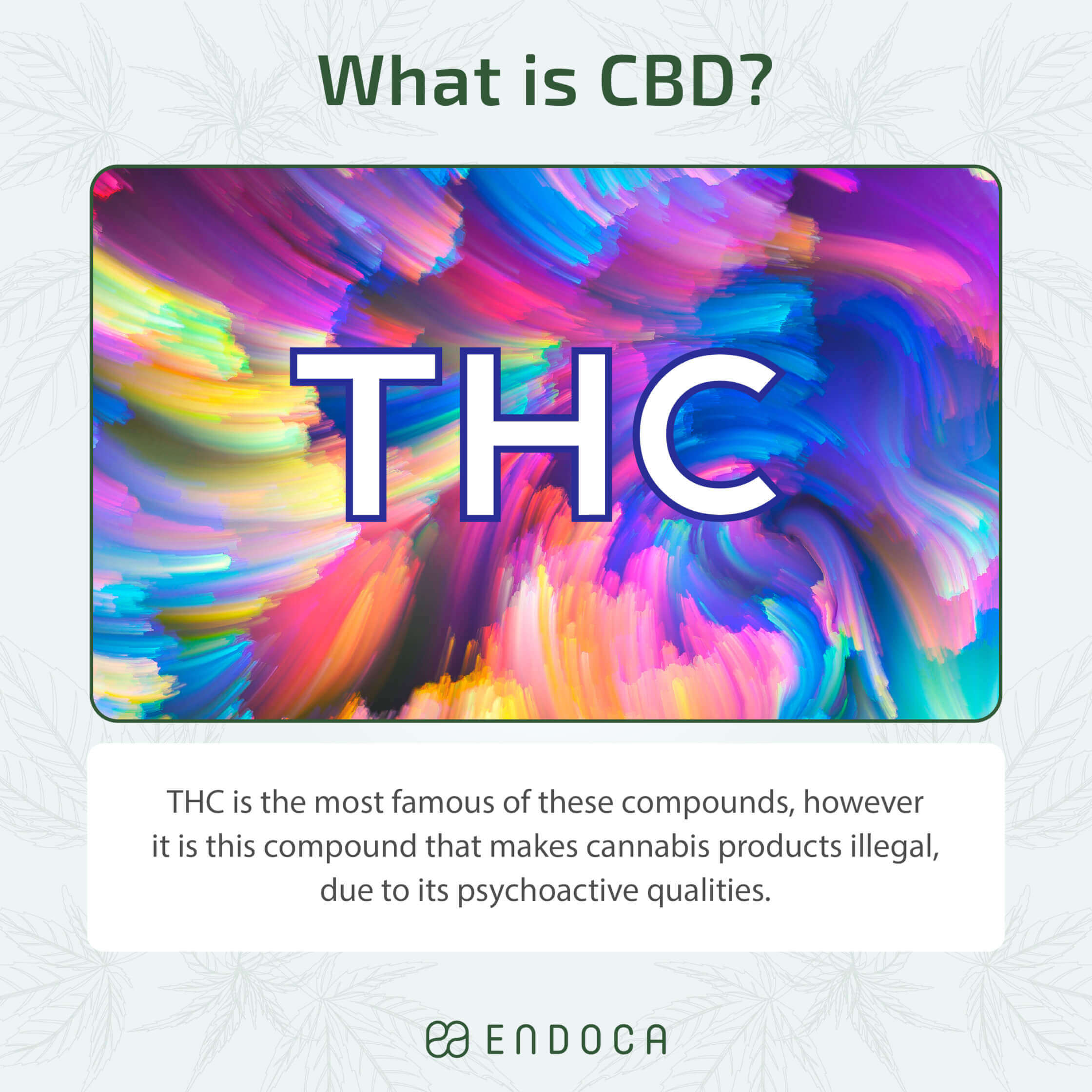
What is THC?
THC stands for tetrahydrocannabinol, which is the psychoactive and intoxicating compound found in Cannabis Sativa that makes you high. THC is the most known of all the cannabis compounds due to its ‘high’ inducing effects and is most commonly linked to recreational use.
It’s most commonly consumed by smoking THC rich strains of cannabis such as marijuana but is also available in oils, tinctures, capsules, and other products and is found in medical cannabis too.
Where do THC and CBD come from?
The CBD and THC compounds are both found in Cannabis Sativa, which can be characterized as having two different varieties, high THC strains such as marijuana and low THC strains known as hemp.
CBD extracts made from cannabis that have low THC content at 0.2% or less, are derived from the hemp variety. While extracts that have high THC content are derived from what’s known as marijuana.
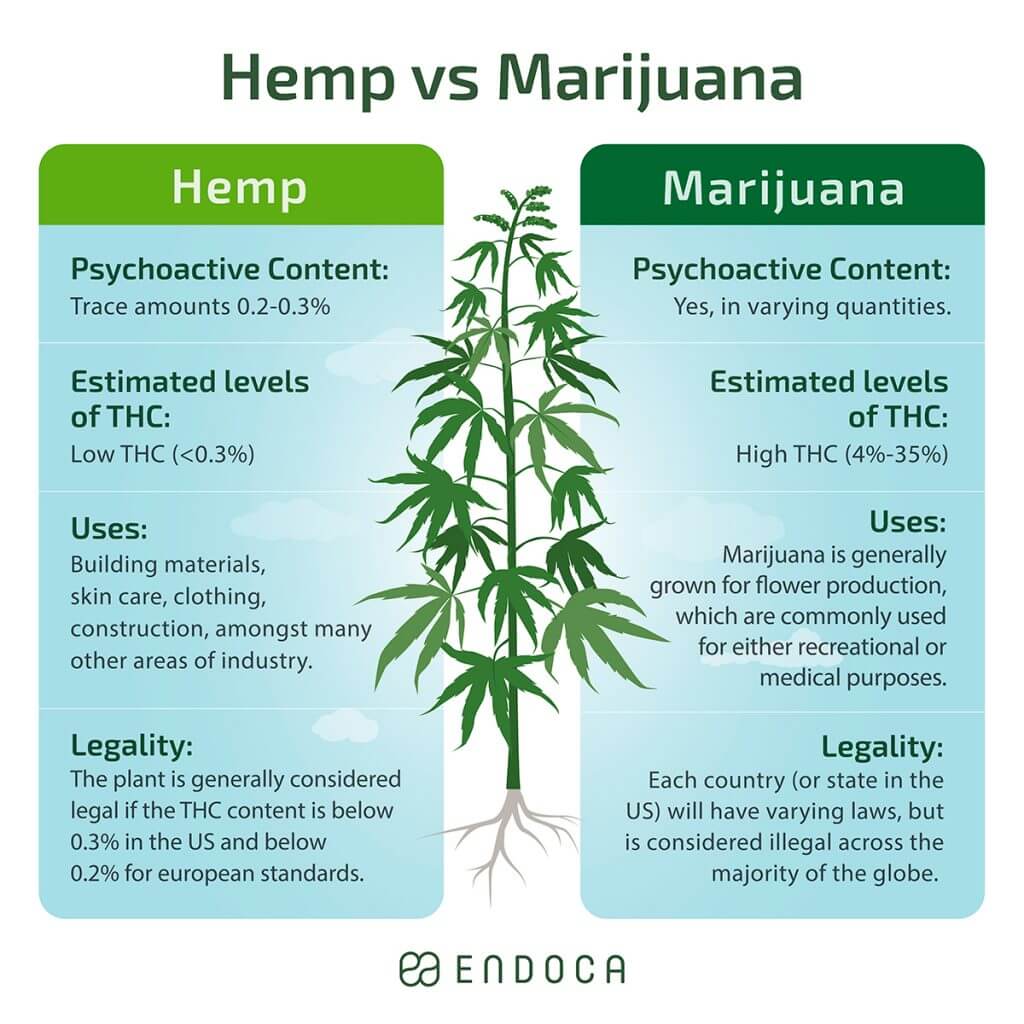
CBD and THC are present in both hemp and marijuana. However, the major difference is the amount that is found in each plant.
Still confused about CBD? You may also like to read ‘What is CBD?’ for more in-depth information.
CBD vs. THC: What’s the Difference?
Chemical Structure
There are many similarities between CBD and THC in their chemical structure, in fact, they have almost the exact same molecules. Both are made up of 30 hydrogen atoms, 21 carbon atoms, and two oxygen atoms. The main difference between the two is found in the arrangement of these atoms and the effects they have on your body.
How Do THC And CBD Affect the Body
The human body is made up of a vast network of receptors, which includes the endocannabinoid system. Similar to the endocannabinoids your body produces, cannabis contains phytocannabinoids that interact with your internal endocannabinoid system.
Due to the similar chemical make-up of CBD and THC, to your own body’s endocannabinoids. CBD and THC work with your system by stimulating and interacting with your CB1 and CB2 cannabinoid receptors.
CB1 receptors are located in the brain and central nervous system, which are connected to your hormones, brain function, and digestion. While CB2 receptors are found in the immune system and help moderate mood and your immune response.
CBD doesn’t interact with CB2 receptors but merely stimulates them to help you produce your own endocannabinoids. CBD stimulates chemical reactions in CB2 receptors, which signals chemical reactions in your neurotransmitters. These transmitters control messages between cells, which are responsible for bodily functions such as immunity, sleep, and pain.
THC has a higher binding affinity than CBD. Therefore it directly binds itself to the CB1 receptors in the brain, which is what causes feelings of euphoria or a ‘high’. CBD doesn’t bind to CB1 receptors like THC, it only stimulates your CB2 receptors, so it doesn’t have the same high inducing effects as THC.
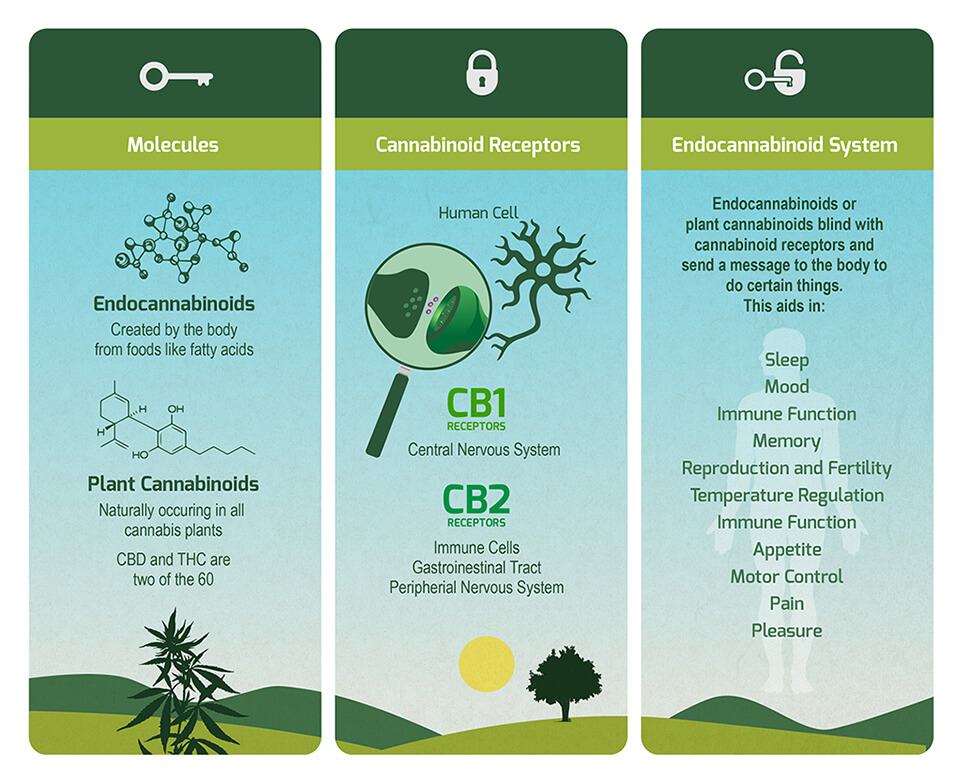
A Complete Breakdown of CBD vs THC
CBD and THC both have similar properties and benefits that can stimulate well-being within the body. However, as a consumer, you also need to know the differences in the legality, potential benefits, and possible side effects.
When choosing products made with CBD, knowing whether they are made from hemp or marijuana is important to consider.
Knowing the clear difference between THC and CBD can be tricky, so here’s a table of the pros and cons to help you.
What are the Side effects of CBD vs THC?
Even though CBD and THC are similar in many ways, the main difference between the two is found in their side effects.
Here are the main differences between the side effects of THC and CBD.
The possible side effects of CBD, include:
- Lightheadedness
- Drowsiness
- Dizziness
- Nausea
- Diarrhea
- Upset stomach
- Low blood pressure
Studies have shown that CBD is generally well-tolerated in high doses. Reactions may occur when CBD is taken with other drugs or medications. If you’re on mediation, always seek professional medical advice.
The main side effects of THC, include:
- Increased heart speed
- Vomiting
- Reduced saliva (dry mouth)
- Slower reactions
- Dizziness
- Trouble concentrating
- Increase appetite
- Red eyes
- Drowsiness
The side effects of both are usually temporary and subside within a few hours. None of these side effects are thought to be serious enough to cause death. But, the long term side effects of THC are seen to be more negative than those of CBD. Especially when taken in large amounts over time. Some studies have shown that prolonged THC use can potentially have long term mental health effects which have been linked to psychiatric disorders.
Legality

Is CBD Legal?
In the United States, cannabis laws vary from state to state and are ever-changing as the legal system catches up with the popularity of CBD and cannabinoid-based products. Cannabis itself still remains a scheduled substance at federal level.
*In 2018 hemp was made federally legal by the US government as an agricultural commodity. Making hemp-derived CBD products with 0.2% THC or less legal under federal law.
Each U.S state has its own cannabis and CBD laws. Most states class CBD from help as legal but states such as Iowa and Idaho still class CBD as being illegal.
Always check your state and country laws before purchasing or traveling with CBD products even if they are hemp-derived.
Why is THC Illegal?
THC is a psychoactive compound that is considered to have mind-altering effects, it is illegal at a federal level in the United States and in most countries around the world because it is thought to change a person’s mental state.
*Some states in the U.S have legalized the use of THC and marijuana for recreational use, while others have only made medicinal cannabis legal, which allows patients with a prescription to access cannabis with THC for medical use only.
In states and countries where marijuana and THC are legal for medical or recreational use, CBD is also legal.
Drug Testing
When taking anything derived from cannabis or even hemp, knowing how it could affect you and your job should be high on the list of things you need to find out before taking anything.
**CBD and THC can stay in the body long after they have been taken. For days and even weeks, THC can be stored in the body’s fat cells, which means it could show up on a drug test even if it’s been a while since you’ve taken it.
Most standardized drug tests aren’t checking for just CBD, they’re mainly looking for THC. Some tests are sensitive to even minute trace amounts of THC.
**If your CBD products are derived from hemp there will be small trace amounts of THC at 0.2% or less. Full-spectrum CBD extracts are whole-plant extracts that maintain a broad profile of cannabinoids. The majority of tests are only looking for THC, however, these trace amounts can be detectable even if they are very low.
Job roles that require mandatory drug testing, such as government workers or teachers should always make the necessary checks before buying and taking any cannabis or hemp-based product.
How to Choose Your CBD Products
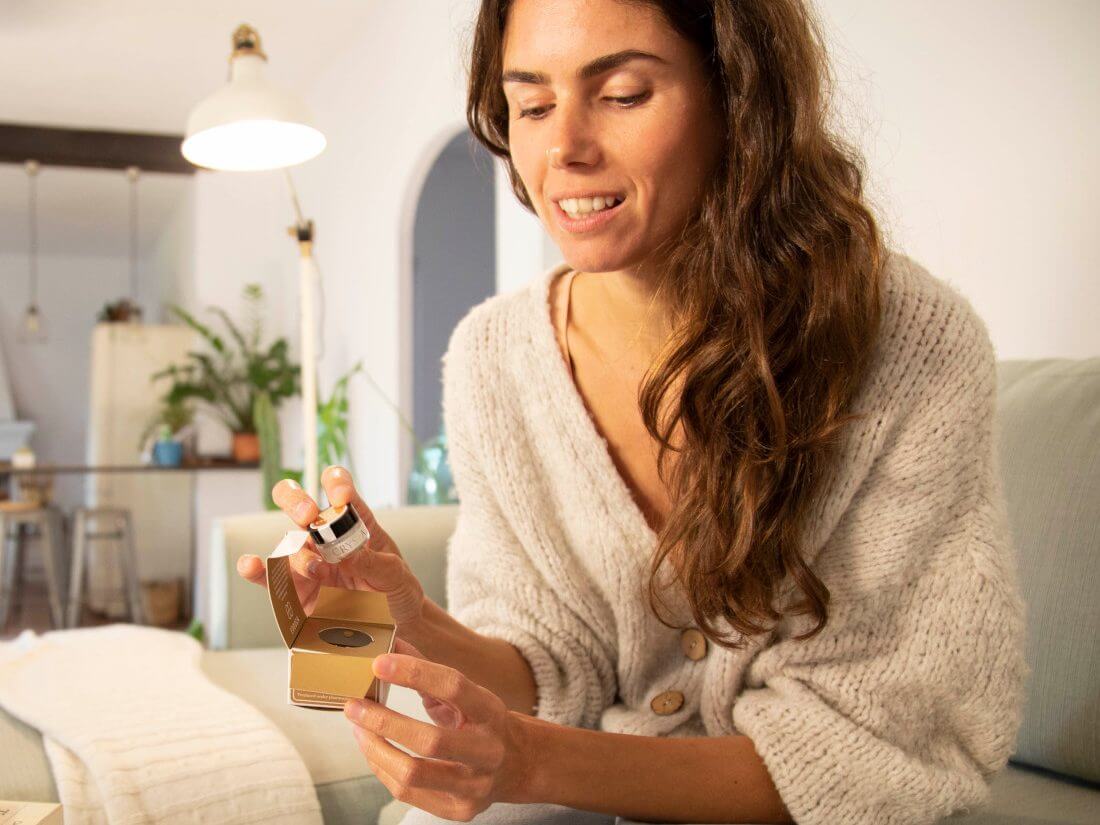
Here are a few things to consider when looking to buy your CBD products.
Where your products are derived from?
Hemp-derived CBD products have less than 0.2% THC which is considered a trace amount but could possibly show up on drug screening in rare cases. Hemp-derived CBD also doesn’t have high inducing effects.
Is your CBD company reputable?
The CBD industry is unregulated and products are unapproved by the FDA. Some companies mislabel their products, use unsafe manufacturing practices or products that may contain chemicals and inaccurate amounts of CBD or THC. Look for companies that publish their lab results and check the results.
Does your CBD product contain THC?
There’s a small chance of a positive result with full-spectrum products, especially if tests are sensitive. Risk is reduced if you choose THC free products, but not eliminated.
Always check state laws where you live or laws when traveling and before using any cannabis-based product.
The Main Takeaway
Often misconceptions about cannabis can lead people to believe CBD and THC act in the same way. They both have benefits in their own right***, and this article serves as a guide to help breakdown the difference between them, so you can make informed decisions about what is right for you.
There are many things to consider when you’re thinking of taking CBD vs THC, but always make sure you do your own personal research before you make your choice.
Still wondering which CBD product is right for you? Our customer care team are always here to help you with any questions you have about our CBD products. Contact us in the chatbox in the right-hand corner for more information.




